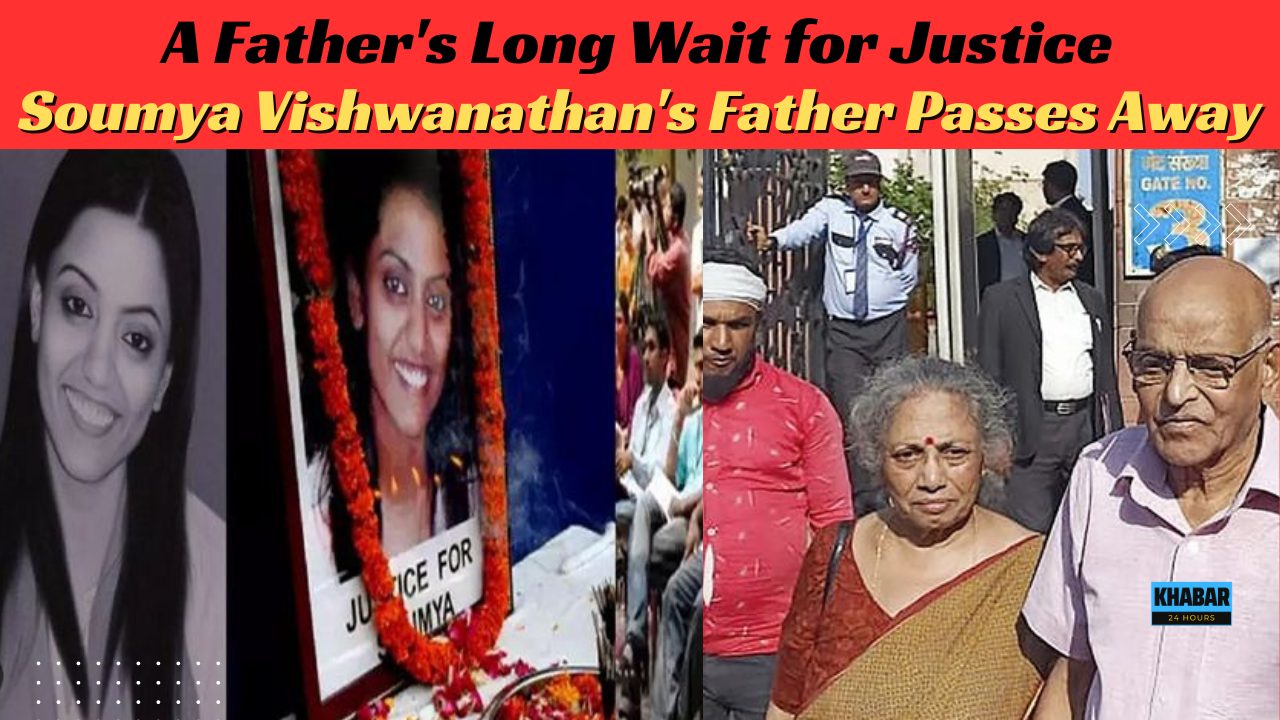
Subtitle: A poignant tale of perseverance and loss in the pursuit of justice
Date: [18.12.2023]
In a tragic turn of events, the father of journalist Soumya Vishwanathan, who was brutally murdered over a decade ago, passed away just days after her killers were sentenced to life imprisonment. The development serves as a poignant reminder of the enduring pain and perseverance that families often endure in their quest for justice.
Soumya Vishwanathan, a promising young journalist, was shot dead in her car on the streets of Delhi in 2008. The incident sent shockwaves through the nation, highlighting the safety concerns faced by women in urban areas. The road to justice was a long and arduous one for her family, with the legal proceedings taking over a decade to reach a conclusion.
Recently, the Delhi court delivered its verdict, sentencing the two accused, Ravi Kapoor and Ajay Kumar, to life imprisonment for their roles in Soumya’s murder. The decision brought a sense of closure for the grieving family, who had been tirelessly fighting for justice for years.
However, the bittersweet victory was short-lived, as Soumya’s father, who had been a pillar of strength for the family throughout the ordeal, succumbed to illness just days after the court’s verdict. His demise serves as a stark reminder of the toll that seeking justice can take on the emotional and physical well-being of those left behind.
The delayed justice in Soumya’s case raises questions about the efficiency of our legal system and the emotional toll it exacts on the families of victims. It prompts a broader conversation about the need for expedited trials, especially in cases that involve heinous crimes against women.
In the aftermath of the court’s decision, family and friends gathered to bid a final farewell to Soumya’s father, expressing a mix of relief for the sentencing and sorrow for the loss of a man who had been unwavering in his pursuit of justice. The irony of the timing was not lost on those who attended, highlighting the complexity of emotions that accompany such cases.
As the nation reflects on this tragic saga, it is crucial to address the systemic issues that contribute to delayed justice in our legal system. The legacy of Soumya Vishwanathan and the tireless efforts of her family should serve as a rallying cry for reforms that ensure swifter, more efficient trials, sparing other families from enduring the prolonged anguish that they faced.
In the end, this story is not just about Soumya’s murder or her father’s passing; it is a testament to the resilience of those who fight for justice in the face of adversity, hoping that their struggle will pave the way for a safer and more just society.

